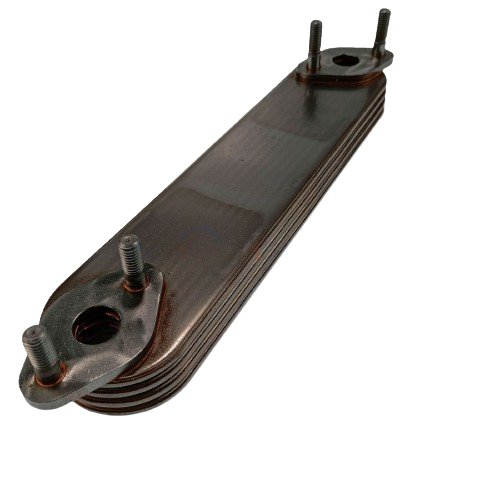As a car owner, it's crucial to stay on top of regular maintenance and be aware of any potential issues with your vehicle. One crucial component that often goes overlooked is the oil cooler. While not as well-known as other parts, the oil cooler plays a vital role in keeping your engine running smoothly. In this blog post, we will discuss common oil cooler problems and how to identify them.
What is an Oil Cooler?
Before we delve into the common problems, let's first understand what an oil cooler is and its purpose. The oil cooler is a heat exchanger that helps regulate the temperature of the engine oil. It works by cooling the hot oil coming from the engine, ensuring optimal performance and longevity.
1. Leaking Oil
One of the most common signs of an oil cooler problem is oil leakage. If you notice oil stains or puddles under your vehicle, it indicates a potential oil cooler issue. Leaking oil may result from loose fittings, damaged seals, or cracks in the cooler itself.
2. Overheating Engine
An overheating engine is another red flag for oil cooler problems. The oil cooler plays a crucial role in maintaining the engine temperature within a safe operating range. If the cooler is not functioning correctly, the engine can overheat, leading to costly damage and potential engine failure.
3. Reduced Oil Pressure
As oil circulates through the engine, it also passes through the oil cooler. A malfunctioning cooler may restrict oil flow, causing a drop in oil pressure. Reduced oil pressure can lead to inadequate lubrication, resulting in engine damage and increased wear and tear.
4. Engine Oil Contamination
If you notice your engine oil is thick, milky, or contains debris, it could be a sign of oil cooler problems. A faulty cooler can mix engine coolant with the oil, leading to oil contamination. Contaminated oil loses its lubricating properties, increasing the risk of engine damage.
5. Engine Overheating at High Speeds
If your engine overheats when driving at high speeds, it could indicate an oil cooler issue. At high speeds, the engine generates more heat, and if the oil cooler fails to adequately cool the oil, the engine temperature can rise rapidly, leading to overheating.
6. Radiator Coolant Contamination
Another way to identify oil cooler problems is by checking the radiator coolant. A faulty oil cooler can cause coolant to mix with the engine oil, resulting in coolant contamination. This can lead to poor engine performance, overheating, and potential damage to engine components.
7. Smoky Exhaust
Have you noticed excessive smoke coming from your exhaust pipe? A malfunctioning oil cooler can cause oil to burn and produce abnormal smoke. If you see thick, dark smoke coming from your exhaust, it's crucial to have your oil cooler inspected as soon as possible.
8. Strange Odors
Oil cooler problems can result in unusual odors coming from your vehicle. Burning oil or coolant can create a distinct smell, indicating a potential issue with the oil cooler. Ignoring these odors can lead to severe engine damage, so it's best to address the problem promptly.
9. Engine Misfires
An oil cooler problem can also cause engine misfires. When the engine oil is contaminated or not adequately cooled, it can affect the combustion process, leading to misfires or rough idling. If your engine is not running smoothly, consider getting your oil cooler checked.
10. Increased Oil Consumption
Has your car been consuming more oil than usual? A malfunctioning oil cooler can contribute to increased oil consumption. When the cooler fails to regulate the oil temperature, it can cause oil to break down more quickly, leading to higher oil consumption.
11. Dashboard Warning Lights
If your vehicle's dashboard warning lights, such as the oil pressure or engine temperature lights, illuminate, it could indicate an oil cooler problem. Modern cars are equipped with sensors that detect abnormalities and alert the driver to potential issues—ignoring these warnings can lead to severe engine damage.
12. Unusual Engine Noises
Lastly, listen for any unusual noises coming from your engine. A malfunctioning oil cooler can cause parts of the engine to heat up improperly, resulting in grinding, knocking, or ticking sounds. These noises should not be ignored and should be looked into by a professional mechanic.
Conclusion: Don't Ignore Oil Cooler Problems
While the oil cooler may not be the first thing that comes to mind when thinking about vehicle maintenance, it plays a crucial role in keeping your engine running smoothly. Identifying common oil cooler problems early can help prevent extensive and expensive damage to your engine. If you notice any of the signs mentioned in this article, it is strongly advised to have your oil cooler inspected and repaired by a certified mechanic.
By staying ahead of potential oil cooler problems, you can enjoy a more reliable and efficient vehicle. Remember, when it comes to car maintenance, prevention is always better than cure!

